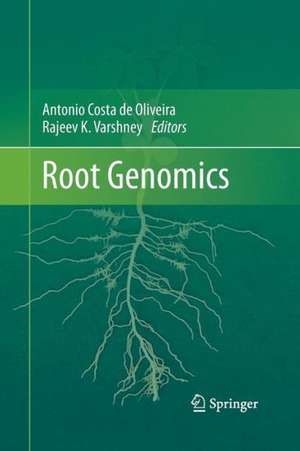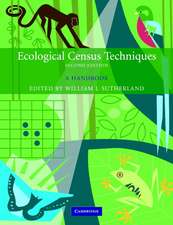Root Genomics
Editat de Antonio Costa de Oliveira, Rajeev Varshneyen Limba Engleză Paperback – 21 sep 2014
| Toate formatele și edițiile | Preț | Express |
|---|---|---|
| Paperback (1) | 946.24 lei 6-8 săpt. | |
| Springer Berlin, Heidelberg – 21 sep 2014 | 946.24 lei 6-8 săpt. | |
| Hardback (1) | 950.84 lei 6-8 săpt. | |
| Springer Berlin, Heidelberg – 4 dec 2010 | 950.84 lei 6-8 săpt. |
Preț: 946.24 lei
Preț vechi: 1153.95 lei
-18% Nou
Puncte Express: 1419
Preț estimativ în valută:
181.09€ • 188.56$ • 153.04£
181.09€ • 188.56$ • 153.04£
Carte tipărită la comandă
Livrare economică 10-24 martie
Preluare comenzi: 021 569.72.76
Specificații
ISBN-13: 9783642422614
ISBN-10: 3642422616
Pagini: 332
Ilustrații: XIV, 318 p.
Dimensiuni: 155 x 235 x 17 mm
Greutate: 0.47 kg
Ediția:2011
Editura: Springer Berlin, Heidelberg
Colecția Springer
Locul publicării:Berlin, Heidelberg, Germany
ISBN-10: 3642422616
Pagini: 332
Ilustrații: XIV, 318 p.
Dimensiuni: 155 x 235 x 17 mm
Greutate: 0.47 kg
Ediția:2011
Editura: Springer Berlin, Heidelberg
Colecția Springer
Locul publicării:Berlin, Heidelberg, Germany
Public țintă
ResearchCuprins
Introduction to root genomics.- EST-based approach for dissecting root architecture in barley using mutant traits of other species.- Genomics of Root-Microbe Interactions.- Plant genetics for study of the roles of root exudates and microbes in the soil.- Impact of the environment on root architecture in dicotyledoneous plants.- Mechanisms of aluminium tolerance.- Root responses to major abiotic stresses in flooded soils.- Genomics of root architecture and functions in maize.- Phenotyping for root traits and their improvement through biotechnological approaches to sustaining crop productivity.- Genomics and physiological approaches for root trait breeding to improve drought tolerance in chickpea (Cicer arietinum L.).- Molecular breeding of cereals for aluminium resistance.- Molecular breeding of rice for problem soils.
Recenzii
From the reviews:
“This book was written for me and all who research and believe that crop design for the 21st Century in a changing and more unpredictable climate requires far greater prioritization be given to achieving a better understanding of root biology and a capability to manipulate plant genomes to improve their function. An impressive selection of very well-regarded researchers world-wide have contributed to this book to assemble what I believe is the most up-to-date and comprehensive report of the current knowledge on crop root genetics.” (Mike W. Humphreys, Experimental Agriculture, Vol. 47 (4), 2011)
“This book was written for me and all who research and believe that crop design for the 21st Century in a changing and more unpredictable climate requires far greater prioritization be given to achieving a better understanding of root biology and a capability to manipulate plant genomes to improve their function. An impressive selection of very well-regarded researchers world-wide have contributed to this book to assemble what I believe is the most up-to-date and comprehensive report of the current knowledge on crop root genetics.” (Mike W. Humphreys, Experimental Agriculture, Vol. 47 (4), 2011)
Textul de pe ultima copertă
With the predicted increase of the human population and the subsequent need for larger food supplies, root health in crop plants could play a major role in providing sustainable highly productive crops that can cope with global climate changes. While the essentiality of roots and their relation to plant performance is broadly recognized, less is known about the role of roots in plant growth and development. “Root Genomics” examines how various new genomic technologies are rapidly being applied to the study of roots, including high-throughput sequencing and genotyping, TILLING, transcription factor analysis, comparative genomics, gene discovery and transcriptional profiling, post-transcriptional events regulating microRNAs, proteome profiling and the use of molecular markers such as SSRs, DArTs, and SNPs for QTL analyses and the identification of superior genes/alleles. The book also covers topics such as the molecular breeding of crops in problematic soils and the responses of root systems to a variety of stresses.
Caracteristici
A valuable source of information for scientists in plant sciences and genomics as well as in applied fields of agriculture and crop plant breeding Presents recent advancements in increasing crop productivity by improvement of root health Written by renowned scientists Includes supplementary material: sn.pub/extras











